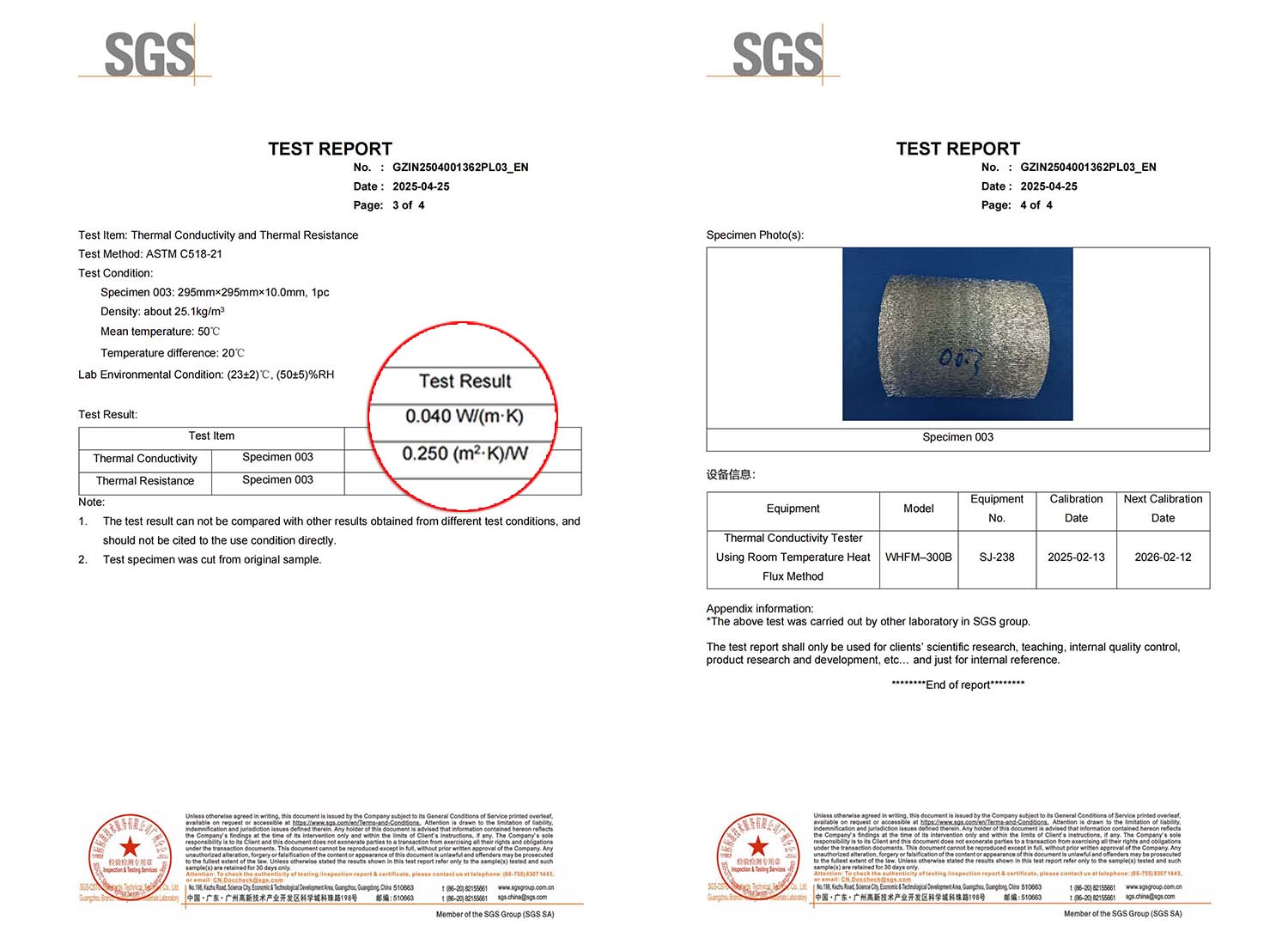Aluminum Foil EPE insulation material (also known as aluminum-foil pearl cotton) is a three-layer structural material composed of EPE pearl cotton (polyethylene foam material) and aluminum film. The aluminum film layer reflects 97% of solar radiant heat, blocking the transmission path of thermal radiation; the closed-cell structure of the EPE pearl cotton layer forms an air insulation layer, effectively blocking heat conduction.
Landy EPE Foam Insulation Material has passed the ASTM C518-21 standard certification, with a measured thermal resistance of 0.250 (m·K)/W and a thermal conductivity as low as 0.040 W/(m·K). It supports custom thickness from 3-15mm and specifications to meet the insulation requirements of different scenarios.
① Building Energy Efficiency
Used as insulation layers for walls, roofs and underfloor heating to reduce energy consumption of air conditioning and heating. When the aluminum foil surface is laid upwards, it can reflect direct sunlight heat, reducing indoor temperature by 8-15℃ in summer.
② Cold Chain Logistics
As lining for refrigerated truck compartments and filling materials for insulated boxes, it can maintain a low-temperature environment for more than 12 hours when used with ice packs, ensuring the safety of fresh food and pharmaceutical transportation.
③ Industrial Equipment Protection
Wrapping steam pipes and refrigeration equipment to reduce heat/cold loss; used as thermal insulation gaskets between mechanical components to prevent high-temperature damage to precision parts.
④ Packaging and Electronics Industry
Shock-proof and heat-insulating packaging for high-end electronic products (such as servers and precision instruments). The aluminum foil layer can also shield electromagnetic interference, improving transportation safety.


 Chinese
Chinese Pусский язык
Pусский язык Fran?ais
Fran?ais Espa?ol
Espa?ol
